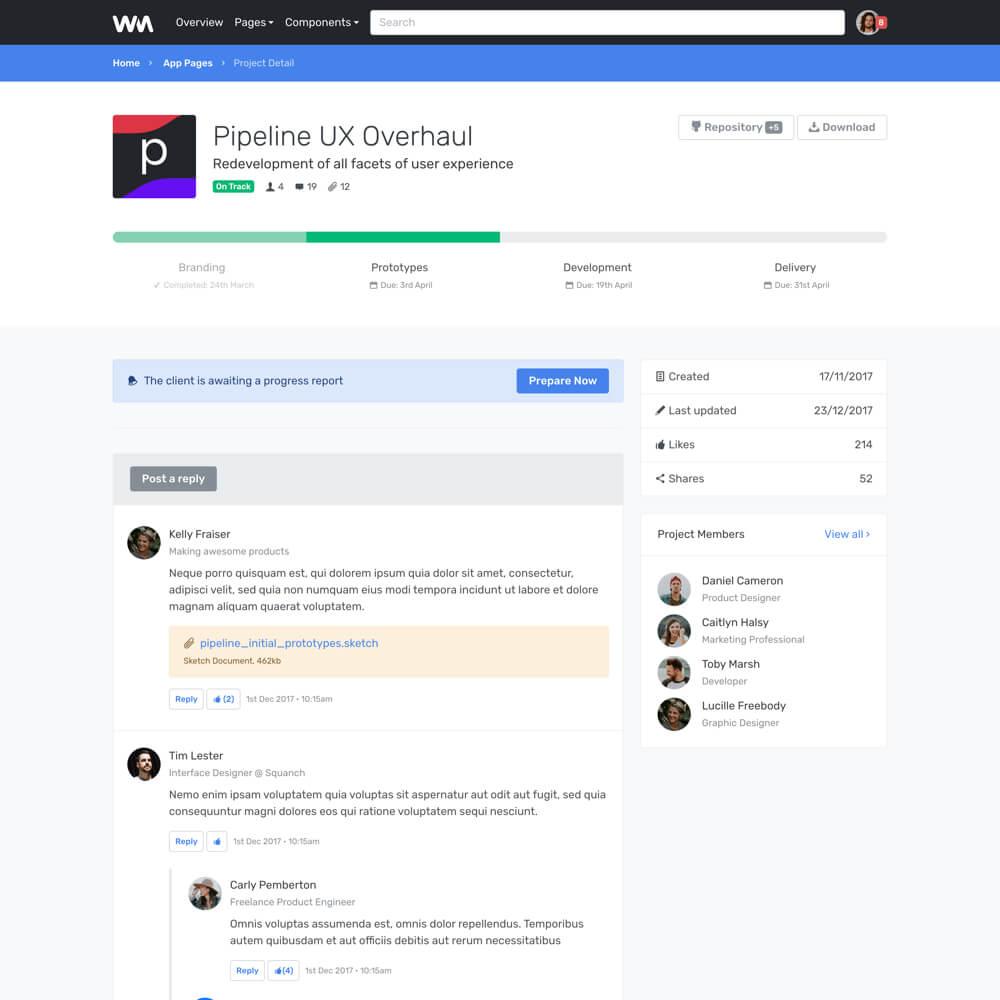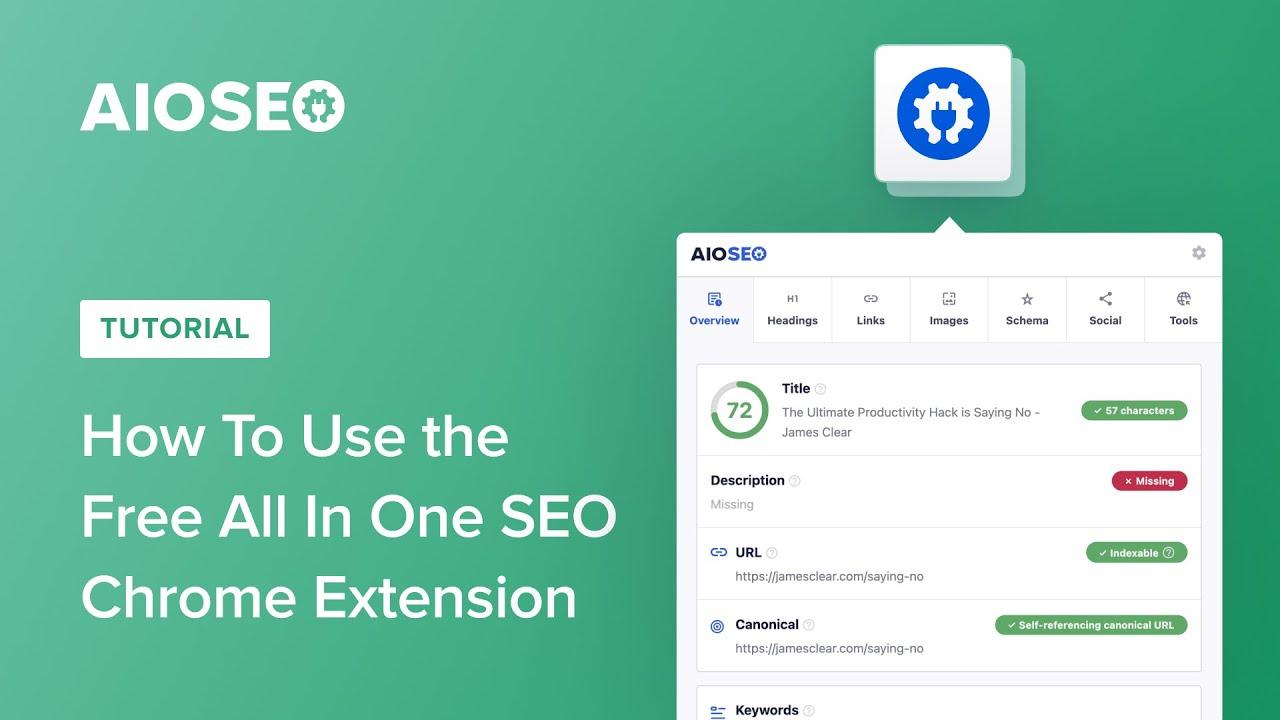
Are you looking to supercharge your SEO efforts and stay ahead of the competition? In today’s digital landscape, having the right tools at your fingertips can make all the difference. Enter Chrome extensions—your secret weapon for optimizing on-page and off-page SEO, as well as conducting in-depth competitor analysis. With thousands of extensions available, it can be overwhelming to find the ones that truly deliver results. That’s why we’ve curated a list of the 25 best SEO Chrome extensions that every marketer and website owner should know about. Whether you’re looking to streamline your keyword research, enhance your content quality, or gain insights into your competitors’ strategies, these tools are designed to simplify your SEO journey and boost your online presence. So, let’s dive in and discover how these handy extensions can transform your approach to search engine optimization!
Unlocking SEO Success with Chrome Extensions
When diving into the world of SEO, leveraging the right tools can make all the difference. Chrome extensions are a game-changer, providing on-the-go insights that empower you to enhance your website’s performance. With just a few clicks, you can analyze your competition, optimize your content, and improve your site’s visibility.
One of the most significant benefits of using Chrome extensions for SEO is their ability to streamline your workflow. Imagine having real-time data right at your fingertips. With tools that offer features like:
- Keyword Analysis: Quickly assess keyword difficulty and search volume without leaving your browser.
- On-Page SEO Audits: Instantly check for SEO best practices on any webpage.
- Backlink Tracking: Monitor your backlink profile and discover new opportunities.
Utilizing these extensions not only saves time but also enhances your strategic decision-making. For instance, tools that provide SERP analysis can help you identify the tactics your competitors use to rank higher. This insight allows you to adapt your strategies and stay ahead in the fast-paced digital landscape.
Here’s a quick comparison of some standout extensions and their key features:
| Extension Name | Main Feature | Best For |
|---|---|---|
| Keywords Everywhere | Keyword suggestions and trends | Keyword research |
| SEOquake | Comprehensive on-page audits | Site analysis |
| MozBar | Domain authority and page authority scores | Competitive analysis |
Another critical aspect is the ability to measure the effectiveness of your SEO efforts. With extensions that track rankings and organic traffic, you can assess your progress and adjust your strategies accordingly. Regularly analyzing this data keeps you in tune with your audience’s behavior and preferences.
Moreover, don’t overlook the power of social media integration. Certain extensions allow you to assess social signals, which can indirectly influence your SEO. Understanding how your content performs across different platforms can provide valuable insights into your audience’s engagement and interests.
In essence, the right Chrome extensions can significantly enhance your SEO toolkit. They offer a wealth of information at your fingertips, enabling you to make informed decisions that drive results. The key is to select the tools that align best with your goals and integrate them seamlessly into your workflow.
The Importance of SEO Tools in Digital Marketing
In today’s competitive digital landscape, leveraging the right tools can make all the difference in your marketing strategy. SEO tools, specifically browser extensions, serve as a vital resource for anyone looking to enhance their website’s visibility and performance in search engine results. By streamlining complex processes, these tools allow marketers to focus on what truly matters: creating high-quality content and building strong connections with their audience.
One of the primary benefits of utilizing SEO tools is the ability to gain insights into your site’s performance. With features that analyze on-page elements, identify technical issues, and assess keyword rankings, these extensions provide a comprehensive view of your site’s health. This data is crucial for making informed decisions that can lead to better optimization. Here are some of the key advantages:
- Real-Time Analysis: Monitor your site’s performance as you browse, allowing for immediate adjustments.
- User-Friendly Interfaces: Many SEO tools are designed with simplicity in mind, making them accessible for beginners while still powerful for advanced users.
- Competitive Analysis: Evaluate your competitors’ strategies, uncovering gaps and opportunities for your own site.
Furthermore, the integration of these tools into your daily routine can enhance your research capabilities. Imagine having the ability to explore keyword opportunities seamlessly while working on your content. Many extensions come equipped with features like keyword suggestions, search volume data, and even SERP analysis, which can significantly improve your content strategy. Engaging with your audience effectively begins with understanding what they are searching for.
Additionally, on-page optimization is made easier with the assistance of these extensions. They can evaluate essential elements such as title tags, meta descriptions, and header tags, providing you with actionable recommendations to improve your on-page SEO. This hands-on approach ensures that every piece of content you publish is primed for maximum visibility.
| Extension Name | Key Features | Best For |
|---|---|---|
| Keywords Everywhere | Keyword metrics, cost per click, competition data | Keyword research |
| SEOquake | SEO audits, backlink analysis, SERP overlay | Comprehensive site analysis |
| MozBar | Domain authority, page authority, keyword difficulty | Competitive analysis |
Moreover, keeping track of your link-building efforts has never been easier. Many SEO extensions offer tools to analyze backlinks, helping you to identify quality linking opportunities and potential toxic links that could hinder your performance. Managing your link profile efficiently is crucial for maintaining a healthy site and improving your search engine rankings.
Ultimately, investing time in understanding and implementing these SEO tools can yield significant returns in your digital marketing efforts. By enhancing your site’s visibility, improving user experience, and staying ahead of your competition, you create a robust foundation for ongoing success in the ever-evolving world of online marketing. Embracing these technologies not only simplifies your SEO tasks but also empowers you to make data-driven decisions that can transform your digital presence.
Enhancing On-Page Optimization with Powerful Extensions
When it comes to optimizing your website for search engines, leveraging powerful extensions can make a significant difference in your on-page strategy. These tools not only provide valuable insights but also streamline various optimization processes, ensuring your content is as effective as possible. From keyword analysis to technical SEO checks, the right extensions can transform the way you approach your site’s optimization.
Keyword research is at the heart of good on-page optimization. Many extensions offer features that help you discover high-ranking keywords relevant to your niche. Here are some standout options:
- Keywords Everywhere: This extension displays keyword metrics directly in your search results, providing a seamless way to gauge keyword popularity and competitiveness.
- SEOquake: A versatile tool that not only presents keyword density but also shows SEO metrics like page rank and backlinks.
- Ubersuggest: Generate keyword ideas and see how they perform across different regions, allowing you to tailor your content effectively.
Once you have your keywords, it’s essential to ensure they are strategically placed throughout your content. Here’s where extensions like Yoast SEO and Rank Math come into play. They provide real-time feedback on your keyword usage, readability score, and even meta tag optimization. These tools guide you to make adjustments that align with best SEO practices, enhancing your content’s relevance to search queries.
Additionally, technical SEO is a critical component of on-page optimization. By using extensions like Web Vitals and PageSpeed Insights, you can analyze your website’s performance metrics. These tools help identify loading speed issues and mobile-friendliness, both of which are essential for retaining users and improving your search engine rankings.
Don’t overlook the importance of content structure either. Extensions like Web Developer can help you audit HTML elements and ensure proper heading hierarchies. This is vital because well-structured content not only enhances user experience but also helps search engines better understand your page’s context.
| Extension | Main Feature | Benefits |
|---|---|---|
| Keywords Everywhere | Keyword metrics in search results | Easy keyword analysis |
| SEOquake | Comprehensive SEO metrics | In-depth performance insights |
| Yoast SEO | On-page optimization suggestions | Improved content quality |
| Web Vitals | Performance metrics analysis | Enhanced user experience |
Lastly, monitoring your on-page efforts is crucial. Extensions like Google Analytics and Google Search Console provide valuable data regarding user engagement and search performance. By regularly reviewing these metrics, you can adjust your strategies and focus on what truly resonates with your audience.
Incorporating these extensions into your SEO toolkit not only boosts your on-page optimization efforts but also empowers you to create content that ranks higher and engages your target audience. The right tools can make all the difference, turning SEO from a daunting task into a manageable and rewarding aspect of your digital marketing strategy.
Must-Have Extensions for Keyword Research
When it comes to optimizing your website for search engines, understanding the right keywords is paramount. The good news is that there are several Chrome extensions that can streamline your keyword research process, giving you valuable insights right from your browser. Here are some of the top contenders you should consider:
- Keywords Everywhere: This extension displays keyword metrics like search volume, cost-per-click (CPC), and competition directly in your Google search results. You can save time by gaining insights without needing to switch tabs!
- Ubersuggest: With Ubersuggest’s Chrome extension, you can generate keyword ideas based on your initial search query. It offers SEO difficulty scores, SERP analysis, and content ideas, making it a comprehensive tool for any marketer.
- SEO Minion: Not only does SEO Minion help with keyword research, but it also allows you to analyze on-page SEO, check broken links, and preview SERPs. This multi-functional tool can be a game-changer in your keyword strategy.
These extensions don’t just help identify which keywords to target; they also offer insights into your competition. Leveraging data from these tools can help you uncover profitable keywords that your competitors might be missing out on.
| Extension | Key Feature | Best For |
|---|---|---|
| Keywords Everywhere | Search volume & CPC data | Quick keyword metrics |
| Ubersuggest | Keyword suggestions & SEO analysis | Comprehensive keyword research |
| SEO Minion | On-page analysis & SERP previews | Holistic SEO insights |
Moreover, consider using AnswerThePublic, an excellent tool for identifying common questions and searches related to your keywords. This extension visualizes data in a way that helps you understand user intent better and can inspire content ideas that resonate with your audience.
Don’t overlook Keyword Surfer, which displays keyword data and related terms as you browse. It provides insights into keyword volumes and suggestions, all while you’re conducting your routine research activities, making it a seamless addition to your workflow.
By integrating these extensions into your keyword research process, you’ll not only save time but also gather a wealth of information that can enhance your overall SEO strategy, driving more organic traffic to your website.

Streamlining Your Content Creation Process
Creating high-quality content consistently can be challenging, especially when juggling various SEO tasks. Fortunately, there are numerous Chrome extensions designed to simplify your workflow and enhance your content creation process. By integrating these tools into your daily routine, you can save time, improve your site’s search engine optimization, and ultimately produce better content.
To kickstart your content creation, consider using tools that help with keyword research. These extensions allow you to:
- Identify trending keywords: Discover what your audience is searching for, enabling you to tailor your topics accordingly.
- Analyze keyword difficulty: Understand how competitive a keyword is, ensuring you target terms that are attainable.
- Explore related keywords: Generate long-tail variations that can help you capture niche traffic.
After you’ve narrowed down your keywords, it’s time to focus on content optimization. Utilizing SEO analysis extensions can help you ensure that your content ranks well. Look for features that offer:
- On-page SEO insights: Get recommendations on how to structure your headings, meta tags, and internal links.
- Readability scores: Make sure your content is engaging and easy to understand for your audience.
- Content scoring: Evaluate your content against top-performing articles to see how you stack up.
To complement your writing process, consider extensions that facilitate content organization and collaboration. These tools can help you:
- Manage your editorial calendar: Keep track of your content schedule to ensure timely publication and consistency.
- Collaborate in real-time: Work seamlessly with your team, allowing for immediate feedback and revisions.
- Track content performance: Use analytics tools to measure engagement and traffic, refining your strategy based on real data.
Lastly, don’t forget about competitor analysis tools. Understanding what works for others can provide invaluable insights. With these extensions, you’ll be able to:
- Examine competitor backlinks: Identify potential opportunities for link building that you may have missed.
- Assess content gaps: Discover topics that your competitors are covering, and find ways to improve upon them.
- Monitor social share metrics: Gauge what types of content are resonating with audiences across social platforms.
| Extension Name | Purpose | Key Feature |
|---|---|---|
| Keywords Everywhere | Keyword Research | Search volume data |
| SEOquake | SEO Analysis | On-page SEO score |
| Grammarly | Content Optimization | Grammar and style checks |
| BuzzSumo | Content Research | Social share metrics |
By incorporating these Chrome extensions into your content creation process, you can work smarter, not harder. Each tool serves a unique purpose, and together they create a powerful arsenal for any content marketer. Streamlining your process will not only enhance your productivity but also elevate the quality of your output, ensuring that your content stands out in a crowded digital landscape.

Analyzing Competitor Strategies Like a Pro
When it comes to competitive analysis, understanding your rivals’ strategies is crucial. By dissecting their approaches, you can identify opportunities to enhance your own SEO efforts. Here are a few techniques that can transform you into a competitive analysis expert:
1. Identify Key Competitors: Start by pinpointing who your primary competitors are. Look for businesses that rank for the same keywords you’re targeting. You can use tools like SEMrush or Ahrefs to generate a list of competitors based on domain similarity and keyword overlap.
2. Analyze Backlink Profiles: Backlinks are a significant ranking factor. Use tools like Moz or Majestic to analyze where competitors are getting their backlinks. Pay attention to:
- Domain Authority of linking sites
- Anchor Text used
- Link Types (follow vs. nofollow)
This analysis will help you uncover potential link-building opportunities by targeting the same or similar sites.
3. Examine Content Strategies: Content is king in SEO. Review the types of content your competitors produce that resonate with their audience. Look at:
- Blog Posts and their engagement metrics
- Video Content and how they integrate it
- Social Media Posts and the platforms they focus on
Tools like BuzzSumo can help you find the most shared content in your niche, giving you insights into effective content formats and topics.
4. Keyword Strategy Review: Gather data on the keywords your competitors are ranking for. Utilize tools like Ubersuggest to see their top keywords, traffic estimates, and changes over time. Create a comparative table to visualize this data:
| Competitor | Top Keyword | Traffic Estimate |
|---|---|---|
| Competitor A | Keyword X | 1,500 |
| Competitor B | Keyword Y | 2,300 |
| Competitor C | Keyword Z | 1,200 |
This table will provide you with a clear picture of where competitors are excelling in keyword targeting, helping you adjust your SEO strategy accordingly.
5. Monitor Social Signals: Social media can amplify your SEO efforts. Look into how competitors leverage social media platforms. Note their posting frequency, audience engagement, and the platforms they prioritize. This will inform your own social media strategies, ensuring you’re maximizing reach and engagement.
6. Track Changes Over Time: SEO is dynamic, and so are your competitors. Regularly revisit your analysis to see how their strategies evolve. Use tools like Google Alerts or Mention to stay informed about competitor news and updates, keeping you one step ahead in your SEO game.
By employing these tactics, you’ll gain deeper insights into your competitors’ strategies, enabling you to refine your own approach and ultimately drive more traffic to your site.

Boosting Your Backlink Profile Effortlessly
Enhancing your backlink profile doesn’t have to feel like an uphill battle. With the right tools at your disposal, you can effortlessly identify opportunities, analyze competitors, and streamline your outreach efforts. Here are some strategies and Chrome extensions that can help you build a robust backlink profile with ease:
Identify High-Quality Linking Opportunities
Finding the right websites for backlinks is crucial. Use extensions like Hunter to discover email addresses associated with target domains. This can significantly expedite your outreach process. Additionally, LinkMiner allows you to analyze existing backlinks on any page, helping you pinpoint sites that are worth contacting.
Analyze Competitor Backlinks
Understanding where your competitors are gaining their links can provide valuable insights. Tools such as SEOquake and MozBar let you examine competitors’ link profiles right from your browser. This can reveal lucrative opportunities that you might not have considered.
Automate Your Outreach
Time is money, and automating repetitive tasks can save you both. With extensions like Mailtrack, you can easily track email opens and clicks, allowing you to focus your follow-up efforts on leads that show interest. Additionally, using Easy Copy lets you quickly gather relevant email templates to streamline your outreach.
Monitor Your Backlink Profile
Keeping tabs on your existing backlinks is just as important as acquiring new ones. The Check My Links extension helps you find broken links on your site, enabling you to reach out for replacements or corrections. Regularly using this tool ensures your backlink profile remains healthy and effective.
Maximize Social Proof
Social signals can amplify your backlinking efforts. Use BuzzSumo to identify content that resonates in your niche. By understanding what’s trending, you can create content that naturally attracts backlinks. Pair this with extensions that facilitate social sharing, and watch your online presence grow.
Track Your Progress
To truly boost your backlink profile, it’s essential to track your progress. Tools like Data Studio can visualize data from your backlink profile, allowing you to see what strategies are working and where adjustments are needed. Create custom dashboards for a clear overview of your SEO performance.
| Extension | Functionality |
|---|---|
| Hunter | Email finder for outreach |
| LinkMiner | Analyze existing backlinks |
| SEOquake | Competitor link analysis |
| Check My Links | Monitor broken links |
By leveraging these tools and strategies, you can build and maintain a powerful backlink profile that enhances your site’s authority and visibility. With just a few clicks, you can turn complex processes into simple, manageable tasks.

Monitoring Your SEO Performance in Real-Time
Understanding your SEO performance in real-time is essential for staying ahead of the competition and improving your online presence. With the right tools, you can monitor your website’s performance metrics, keyword rankings, and overall search visibility without breaking a sweat. Here are some effective ways to keep tabs on your SEO efforts.
Utilize Real-Time Analytics Tools
Implementing tools like Google Analytics and Google Search Console can offer you invaluable insights into how your website is performing. These platforms allow you to:
- Track user behavior on your site in real-time.
- Monitor traffic sources and identify which keywords are driving visitors.
- Analyze bounce rates and session durations to gauge content effectiveness.
Leverage Chrome Extensions for Quick Insights
You don’t always need to dive into complex dashboards to gauge your SEO performance. Chrome extensions can provide instant feedback. Some popular options include:
- Keywords Everywhere: For tracking keyword performance and search volume directly from your browser.
- SEOquake: To analyze on-page SEO metrics right from the search results.
- MozBar: For quick access to domain authority and page authority metrics.
Keep an Eye on SERP Changes
Search Engine Results Page (SERP) rankings can fluctuate frequently. Using tools like SERPWatcher or AccuRanker allows you to monitor your rankings on a daily basis. You can:
- Set alerts for significant changes in keyword positions.
- Analyze the impact of your SEO efforts on visibility.
- Identify trends and opportunities for optimization.
Measure Page Load Speed
Page load speed is a critical factor for both user experience and SEO. Utilizing tools such as Google PageSpeed Insights or GTmetrix can help you evaluate loading times and pinpoint areas for improvement. Consider the following:
| Tool | Key Feature |
|---|---|
| Google PageSpeed Insights | Offers actionable recommendations for speed optimization. |
| GTmetrix | Provides detailed performance reports and historical data. |
Monitor Backlink Performance
Understanding your backlink profile is crucial for maintaining and improving your SEO rankings. Use tools like Ahrefs or Majestic to regularly check:
- The quality and quantity of backlinks.
- Newly acquired and lost backlinks.
- Anchor text distribution to optimize your link-building strategy.
By actively , you can make timely adjustments that lead to better results. Whether it’s through analytics, Chrome extensions, or dedicated SEO tools, staying informed and agile is key to your digital marketing success.

User Experience and SEO: The Perfect Pair
When it comes to crafting a successful online presence, striking the right balance between user experience and search engine optimization is crucial. A seamless user experience not only keeps visitors engaged but also signals to search engines that your content is valuable. This synergy can significantly enhance your website’s performance, making it essential to consider both elements in your digital strategy.
User experience (UX) encompasses everything from site navigation to loading speed and mobile responsiveness. When users encounter a site that is easy to navigate and visually appealing, they are more likely to stay longer and explore further. This increased engagement reduces bounce rates, which can positively influence your site’s ranking on search engine results pages (SERPs).
On the other hand, SEO is the art of optimizing your website so that it ranks higher in search results. It involves keyword research, content optimization, and technical enhancements. However, it’s important to remember that SEO should not be pursued in a vacuum. Focusing solely on SEO tactics—such as keyword stuffing—could lead to a poor user experience, ultimately driving visitors away.
Here are some key areas where user experience and SEO intertwine:
- Page Speed: A fast-loading site improves user satisfaction and boosts your SEO ranking.
- Mobile Optimization: With many users browsing on mobile devices, responsive design is a must for both UX and SEO.
- Content Quality: Providing informative, engaging content keeps users on your site longer, signaling to search engines that your content is relevant.
- Clear Navigation: Intuitive navigation helps users find what they need quickly, which can lead to increased conversions.
To better illustrate this connection, consider the following table that highlights areas of overlap between UX and SEO:
| User Experience Factor | SEO Impact |
|---|---|
| Website Load Time | Higher rankings for faster sites |
| Mobile-Friendliness | Boosted visibility on mobile search |
| Content Relevance | Improved keyword rankings |
| User Engagement Metrics | Better SERP performance |
By prioritizing UX while implementing SEO strategies, businesses can foster a holistic approach that not only attracts visitors but also converts them into loyal customers. In today’s competitive digital landscape, understanding the connection between these two elements is not just beneficial—it’s imperative for sustained success.

Integrating Local SEO Tools into Your Workflow
can significantly enhance your online presence and drive more relevant traffic to your site. These tools can help streamline your optimization processes, ensuring you’re not only attracting visitors but also converting them into loyal customers. By adopting the right extensions, you can manage your local SEO efforts more effectively and efficiently.
Local SEO tools can assist in various areas, from keyword research to competitor analysis. Here’s how you can seamlessly integrate them into your day-to-day operations:
- Keyword Research: Utilize extensions like MozBar or Keywords Everywhere to identify high-ranking local keywords. These tools provide real-time data, enabling you to optimize your content with the most relevant search terms.
- On-Page SEO: Leverage tools like SEOquake to conduct on-page audits. This extension evaluates your page’s SEO health, providing insights on meta tags, keyword usage, and other important elements to enhance your local rankings.
- Competitor Analysis: Tools such as SimilarWeb and Wappalyzer allow you to spy on your competitors’ online strategies. By understanding what works for them in your local market, you can adjust your tactics to outshine them.
Furthermore, tracking your SEO performance is crucial. Consider integrating tools like Ahrefs or SEMrush into your routine. These platforms offer comprehensive reporting features that help you monitor local rankings, backlinks, and overall site health. Keeping an eye on these metrics can inform your strategy and enhance your local visibility.
| Tool | Primary Function |
|---|---|
| MozBar | Keyword Research & Page Analysis |
| SEOquake | On-Page SEO Audit |
| SimilarWeb | Competitor Analysis |
| Keywords Everywhere | Keyword Data & Suggestions |
| Ahrefs | Performance Tracking |
Moreover, don’t forget about the importance of local citations. Tools like BrightLocal and Yext help you manage your business listings across multiple platforms. Keeping your information consistent and up-to-date is vital for local SEO success, and these tools can automate much of that process.
Integration of these local SEO tools not only simplifies your workflow but also enhances your strategy. By actively monitoring, analyzing, and adjusting your approach with these extensions, you can ensure that your business stands out in the crowded local market. With consistent effort and the right tools, your local SEO initiatives can lead to increased visibility and higher conversion rates.

Navigating Technical SEO with Ease
In the ever-evolving landscape of digital marketing, mastering technical SEO is vital for enhancing your website’s performance and visibility. Chrome extensions can significantly simplify this process, providing handy tools right at your fingertips. Whether you’re conducting a comprehensive audit or making on-the-fly adjustments, the right extensions can make all the difference.
One of the most powerful aspects of Chrome extensions is their ability to deliver real-time insights. For instance, tools like SEO Minion and Web Developer offer immediate assessments of on-page SEO factors such as meta tags, header structure, and alt attributes. By integrating these extensions into your workflow, you can quickly identify areas for improvement without diving deep into complex analytics.
Additionally, technical audits are crucial for any SEO strategy. Using extensions like Lighthouse and Site Audit by SEMrush, you can generate instant reports that highlight critical issues, ranging from page speed to mobile responsiveness. This proactive approach helps you address problems before they impact your rankings, ensuring a smooth user experience.
Another significant advantage is the ability to analyze your competitors effortlessly. Tools like SimilarWeb and Keywords Everywhere empower you to explore your competitors’ traffic sources and keyword strategies. By understanding what works for them, you can refine your own approach and stay ahead in the competitive landscape.
When it comes to link building, extensions such as Hunter and MozBar can streamline your outreach efforts. These tools allow you to gather contact information and assess domain authority on the fly. Establishing connections with relevant sites becomes less of a chore and more of a strategic endeavor when you have the right resources.
| Extension | Purpose | Key Features |
|---|---|---|
| SEO Minion | On-page SEO analysis | Check links, analyze SERPs, and more |
| Lighthouse | Performance audits | Page speed, accessibility, SEO checks |
| SimilarWeb | Competitor analysis | Traffic insights, audience demographics |
| Hunter | Link building | Email verification, outreach management |
don’t overlook the power of user experience (UX) in technical SEO. Extensions like Page Ruler help you measure and analyze the layout of your site. By ensuring your design is both attractive and functional, you can boost engagement and reduce bounce rates, which are critical metrics for SEO success.
Incorporating these tools into your daily routine can significantly enhance your technical SEO capabilities. By leveraging the features of these Chrome extensions, you’ll not only save time but also gain a competitive edge that can propel your website to new heights. Embrace the digital toolkit available and watch your SEO strategy flourish!

Tips for Choosing the Right SEO Extensions for Your Needs
When it comes to enhancing your SEO efforts, the right Chrome extensions can make all the difference. With a plethora of options available, it’s essential to navigate through them wisely. Here are some key considerations to help you select the most suitable SEO extensions for your needs:
- Identify Your Goals: Before diving into the vast sea of extensions, clarify what you aim to achieve. Are you focusing on on-page optimization, competitor analysis, or perhaps keyword research? Each extension serves a unique purpose, and knowing your objectives will streamline your choices.
- User Experience & Interface: The usability of an extension is crucial. Choose tools that offer a user-friendly interface, allowing you to navigate easily without feeling overwhelmed. Look for extensions that provide clear insights and actionable data at a glance.
- Integration with Other Tools: Some extensions work best when integrated with other platforms. If you already use specific tools for analytics or keyword tracking, select extensions that complement these services for a more cohesive workflow.
- Reputation & Reviews: Always check out user reviews and ratings before installing an extension. Tools with a solid reputation often come with robust features and reliable support. A quick glance at the extension’s feedback can save you from potential headaches.
To further assist your decision-making, consider the following table that outlines some popular SEO extensions and their primary features:
| Extension | Primary Feature | Best For |
|---|---|---|
| Keywords Everywhere | Keyword research with search volume data | Content creators & marketers |
| SEOquake | SEO metrics on the fly | Competitor analysis |
| MozBar | Page authority & domain authority metrics | Link building |
| Check My Links | Broken link checking | Website audits |
Another critical factor is the frequency of updates. SEO best practices are ever-evolving, so extensions that receive regular updates are more likely to adapt to the latest trends and algorithm changes. Make sure to choose tools from developers who are proactive about maintaining and improving their products.
consider the cost associated with certain extensions. While many are free, some premium options provide advanced features that can justify the expense. Assess whether the benefits of a paid extension align with your SEO strategy and budget.
By keeping these considerations in mind, you’ll be better equipped to choose the SEO extensions that will enhance your website’s performance and streamline your optimization processes. Happy optimizing!

Maximizing Your Extensions Potential with Best Practices
To truly unlock the full potential of your SEO Chrome extensions, it’s essential to adopt best practices that enhance your workflow and maximize effectiveness. Here are some strategies to implement:
- Prioritize Your Tools: Not all extensions are created equal. Choose a select few that align with your specific SEO goals. This minimizes clutter and helps you focus on what truly matters.
- Regularly Update Extensions: New features and improvements can make a significant impact on your productivity. Keep your extensions updated to leverage the latest capabilities.
- Integrate Extensions into Your Daily Routine: Make it a habit to use your extensions for every task. Whether it’s keyword research or backlink analysis, consistency will lead to better outcomes.
Incorporating these tools into your workflow should also come with a clear approach to utilization. Here’s how you can effectively manage and apply these extensions:
| Extension | Purpose | Best Use Case |
|---|---|---|
| Keywords Everywhere | Keyword Research | During content brainstorming sessions |
| SEOquake | SEO Audit | When analyzing competitors’ websites |
| MozBar | On-page SEO | For quick page authority checks |
Another vital practice is to combine the insights from different extensions. For example, use a keyword tool alongside an on-page SEO extension to ensure your content is both discoverable and optimized. This synergy can lead to more comprehensive strategies and better rankings.
don’t forget the importance of analytics. Use extensions that provide performance metrics, and analyze their data regularly. This helps you understand what’s working and what isn’t, allowing you to refine your approach continually. Remember to:
- Set Clear Goals: Define what success looks like for your SEO efforts.
- Review and Adjust: Regularly revisit your strategies based on the data and insights gained from your extensions.
- Stay Educated: SEO is ever-evolving. Keep learning about new trends and tools that can further enhance your capabilities.
By following these best practices, you’ll not only enhance your productivity but also significantly improve your SEO outcomes. The right strategies coupled with the best tools can create a winning formula for your online presence.

Future Trends in SEO Extensions You Should Know About
As we look ahead, the landscape of SEO is ever-evolving, and with it, the tools we use to optimize our strategies are changing too. Here are some trends in SEO extensions that are poised to shape the future of digital marketing:
AI-Powered Insights: The integration of artificial intelligence into SEO extensions is transforming how we analyze data. Tools that leverage AI can provide real-time insights, predictive analytics, and personalization capabilities. These advancements will help marketers make data-driven decisions faster than ever.
Voice Search Optimization: With the rise of voice-activated devices, SEO extensions are adapting to help users optimize for voice search results. This includes keyword tracking features that focus on conversational phrases and local search optimizations to ensure better visibility in voice queries.
Real-Time Collaboration Features: As remote work becomes more common, SEO extensions are incorporating collaboration tools that allow teams to work on projects simultaneously. This trend enhances productivity and ensures that SEO strategies can be developed and refined in real time.
Focus on User Experience: Search engines are increasingly prioritizing user experience signals. SEO extensions will likely incorporate metrics that analyze site usability, page speed, and mobile responsiveness. These insights will help marketers create websites that not only rank well but also provide a pleasant experience for visitors.
Structured Data Enhancements: As search engines continue to evolve, the importance of structured data will only increase. Future SEO extensions are expected to include more robust tools for implementing schema markup, making it easier for websites to provide search engines with the information they need to display rich snippets and answer user queries effectively.
| Trend | Impact on SEO |
|---|---|
| AI-Powered Insights | Faster, data-driven decision-making |
| Voice Search Optimization | Improved rankings for conversational searches |
| Real-Time Collaboration | Enhanced team productivity |
| User Experience Focus | Better rankings and site usability |
| Structured Data Enhancements | Richer snippets and improved visibility |
Mobile-First Indexing: With Google shifting to mobile-first indexing, SEO tools are increasingly focusing on mobile optimization features. Such extensions will help ensure that websites are fully optimized for mobile users, which is essential for ranking well in search results.
Integration with Other Marketing Tools: Lastly, we expect to see a rise in SEO extensions that seamlessly integrate with other marketing tools, such as social media management and content creation platforms. This interconnectedness will streamline marketing efforts, allowing for a more cohesive strategy across all channels.
Frequently Asked Questions (FAQ)
Q&A: 25 Best SEO Chrome Extensions (On/Off-Page & Comp Analysis)
Q1: What are SEO Chrome extensions, and why should I use them?
A1: Great question! SEO Chrome extensions are handy tools that integrate directly with your Chrome browser, allowing you to analyze and optimize your website with just a few clicks. They can help you with everything from keyword research to competitive analysis, making your SEO efforts more efficient and effective. By using these extensions, you can quickly gather insights that would otherwise take much longer to obtain, ultimately saving you time and improving your site’s visibility.
Q2: How do on-page SEO extensions differ from off-page ones?
A2: On-page SEO extensions focus on optimizing your website’s content and structure, ensuring that everything from keywords to meta tags is in tip-top shape. Think of them as your website’s personal trainers! Off-page SEO extensions, on the other hand, deal with external factors like backlinks and social signals, helping you gauge your site’s authority and performance in the broader web landscape. Both types are crucial for a well-rounded SEO strategy!
Q3: Can these extensions help with competitive analysis?
A3: Absolutely! Many SEO Chrome extensions are specifically designed to give you insights into your competitors’ strategies. They can reveal what keywords competitors are ranking for, their backlink profiles, and even their traffic sources. This information is invaluable for tweaking your own strategy and staying ahead in the SEO game. Knowing what works for others can inspire you to make smarter decisions for your site.
Q4: Are there any extensions that are particularly good for beginners?
A4: Yes! Several extensions are user-friendly and perfect for those just starting out with SEO. For instance, tools like Keywords Everywhere and MozBar offer straightforward interfaces and essential features that make keyword research and site analysis a breeze. They give you the data you need without overwhelming you with complex metrics, making them ideal for beginners.
Q5: What’s the best way to integrate these extensions into my workflow?
A5: Integrating SEO Chrome extensions into your workflow is easier than you might think! Start by identifying the areas of SEO you want to improve, whether it’s keyword research, site audits, or competitor analysis. Then, choose a few extensions that focus on those areas. For example, if keyword research is your priority, install Keywords Everywhere and Ubersuggest. Make it a habit to check these tools daily as you work on your site to ensure you’re consistently optimizing and gathering insights.
Q6: Are there any free extensions worth using?
A6: Definitely! Many of the best SEO Chrome extensions offer free versions that are packed with valuable features. Extensions like MozBar, SEOquake, and PageSpeed Insights provide excellent data without costing a dime. While premium versions might offer more advanced features, the free tools are often more than enough for small businesses or those just starting with SEO.
Q7: How do I choose the right extensions for my needs?
A7: Choosing the right extensions can feel overwhelming, but it doesn’t have to be! Start by defining your SEO goals. Are you focused on improving on-page elements, building backlinks, or analyzing competitor strategies? Once you have clarity on your objectives, look for extensions tailored to those specific needs. It’s also a good idea to read user reviews and maybe try out a few to see what fits your style best.
Q8: What are some of the top extensions that you recommend?
A8: I’m glad you asked! Here’s a shortlist of some of the top contenders:
- MozBar - for quick SEO insights.
- Keywords Everywhere – for keyword research.
- SEOquake – for comprehensive site audits.
- PageSpeed Insights – for performance optimization.
- SimilarWeb – for competitive analysis.
These extensions not only offer powerful features but are also user-friendly and widely trusted in the SEO community.
Q9: Can I use multiple extensions at once?
A9: Absolutely! In fact, using multiple extensions can provide you with a broader range of data and insights. Each extension typically specializes in different areas, so combining them can give you a more comprehensive view of your SEO efforts. Just be mindful of potential browser slowdowns; too many extensions running simultaneously can sometimes affect performance.
Q10: What’s the biggest takeaway from using SEO Chrome extensions?
A10: The biggest takeaway is that these tools can significantly streamline your SEO processes. Whether you’re conducting keyword research, analyzing competitors, or auditing your site, the right extensions can save you time and enhance your overall strategy. Embracing these tools means you can make data-driven decisions that lead to better rankings and increased traffic. So, dive in, experiment, and watch your SEO efforts soar!
Future Outlook
As we wrap up our exploration of the 25 best SEO Chrome extensions, it’s clear that these tools can be game-changers for anyone looking to boost their online presence. Whether you’re diving into on-page optimization, off-page strategies, or competitive analysis, these extensions offer a wealth of insights right at your fingertips.
But remember, the true power of these tools lies in how you use them. Integrating the right extensions into your workflow can help streamline your processes, uncover hidden opportunities, and ultimately elevate your SEO game. So don’t hesitate—give them a try and see how they can transform your approach to search engine optimization.
If you found this list helpful, why not share your experiences with these extensions or let us know about your favorites in the comments? And, of course, stay tuned for more tips and tricks to keep your SEO strategies ahead of the curve. Happy optimizing!






